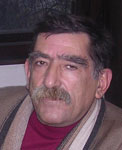| |
"Coruption in Serbia Five Years Later"
CLDS, novembar2007.
|
|
The Conference "Coruption in Serbia Five Years Later" took place at  the Sava Centar, Belgrade, on November 3rd, 2007, gathered over sixty leading Serbian acacemics in the field, ministers of economy, finance, justice and interior affairs. CLDS presented its latest study of corruption in Serbia. (browse the Gallelry) |
| |
| |
|
|
|
 |
 |
 |
 |
| |
|
|
|
|
|
|
|
|
| |
|
|
|
 |
 |
 |
|
|
| |
|
|
|
|
|
|
|
|
| |
|
|
|
| |
The Deputy Prime Minister Bozidar Djelic said that the progress in fight
against corruption that was made since 2000 is not satisfactory since
Serbia is lagging behind other European countries, on this issue. He also
said that no one can be happy about the speed of changes, but that the
introduction of anticorruption institutional innovations (such as
ombudsman, public information office) has to be continued and that new
institutions have to be created, such as Anticorruption Agency.
Minister of Justice Dusan Petrovic stated that corruption has to be one of
the issues in Serbian transition since the progress in the fight against
corruption shall determine the progress of Serbia as a country. According
to the research conducted by the ministry, between 70 and 75 of the
citizens think that there is corruption in the judiciary. Petrovic also
said that a lot of criminal cases have been outdated, that mild punishment
is common and below legal minimum and added that citizens think that
corruption is the reason for poor work of courts.
The minister of interior Dragan Jocic stated that corruption is
pathological phenomenon and universal social problem which is difficult to
detect since it is made difficult by technocracy, bureaucracy and
politics. Jocic emphasized that causes of corruption are transition,
inefficiency of courts and police, inefficiency of other control bodies,
incompetent implementation of laws and resistance to changes.
The minister of economy and regional development Mladjan Dinkic emphasized
that corruption is a complicated problem which has to be separated and
that at once has to be dealt with both its causes and consequences. Dinkic
said that complicated bureaucratic procedures help corruption and that the
first step in this fight would have to be their simplification and
announced that the introduction of the “guillotine of procedures” shall be
initiated until the end of this year.
The minister of finance Mirko Cvetkovic said that his ministry is fighting the
corruption through the implementation of the existing laws, such as public
procurement law, budgetary system, tax administration and financing of
political parties. Cvetkovic emphasized that the operations of Tax
Administration and Customs Administration has to be improved.
Boris Begovic, President of the CLDS presented the findings of the study.
He emphasized that CLDS’s research demonstrates that corruption has been
reduced significantly since 2001, but that the level is still above
citizen expectations. The survey demonstrated that citizens perceive
corruption as social, not as a personal problem, which shows that most of
their answers in the survey are not based on personal experiences. The
efforts of the government in the previous period have been graded at 2.3
(on a 1 to 5 scale). The research also demonstrated that the amount paid
for corruption has been reduced – in 2001, 15 per cent of the
entrepreneurs spent more than 10% of the total revenues on corruptio,
while in 2006 only 5 per cent of entrepreneurs reported the same.

|
|
|









